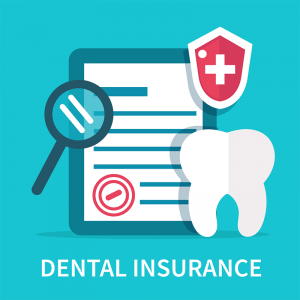By Jim Miller
I will turn 65 in a few months and will be enrolling in Medicare, but I am concerned about Medicare’s coverage of dental care. Does Medicare cover dental procedures? And if not, where can I get dental coverage?
Almost 65
Dear Almost,
Medicare’s coverage of dental care is extremely limited. It will not cover routine dental care including checkups, cleanings or fillings, and it won’t pay for dentures either. You need to go to a Private Dentist to avail dental cleaning, checkups, and other dental services.
Medicare will, however, cover some dental services if they are required to protect your general health, or if you need dental care in order for another health service that Medicare covers to be successful. For example, if you have cancer and need dental services that are necessary for radiation treatment, or if you need surgery to treat fractures of the jaw or face, Medicare will pay for these dental services.
Although Medicare’s coverage of dental services is limited, there are other ways you can get coverage and care affordably. One of the major ways is to look into dental care procedures offered by other dentists – head to Teach Dental Group for more information.
Here are several to check into.
Consider a Medicare Advantage plan
While dental services are mostly excluded under original Medicare, some Medicare Advantage plans, which is recommended for reading, do provide coverage for routine dental care. If you are considering joining a Medicare Advantage plan, find out what dental services, if any, it covers. Also, remember to make sure any Medicare Advantage plan you’re considering covers the doctors and hospitals you prefer to use and the medications you take at a cost you can afford. See Medicare.gov/find-a-plan or call 800-633-4227 to research plans in your area.
Purchase dental insurance
If you have frequent gum problems and need extensive dental care, a dental insurance plan may be worth the costs versus paying for care yourself. Expect to pay monthly premiums of $15 to $40 or more for insurance. To find dental plans, go to NADP.org and use the “find a dental plan” tool. Then review a specific plan’s website.
Consider dental savings plans
While savings plans aren’t as comprehensive as insurance, they’re a good option for those who can’t get covered. How this works is you pay an annual membership fee — around $80 to $200 a year — in exchange for 10 to 60 percent discounts on service and treatments from participating dentists. To find a savings plan, go to DentalPlans.com (or 888-632-5353) where you can search for plans and participating dentists, as well as get a breakdown of the discounts offered.
Check veterans’ benefits
If you’re a veteran enrolled in the VA health care program or are a beneficiary of the Civilian Health and Medical Program (CHAMPVA), the VA offers a dental insurance program that gives you the option to buy dental insurance through Delta Dental and MetLife at a reduced cost. The VA also provides free dental care to vets who have dental problems resulting from service. To learn more about these options, visit VA.gov/dental or call 877-222-8387.
Shop around
FairHealthConsumer.org and HealthcareBlueBook.com lets you look up the cost of different dental procedures in your area, so you can comparison shop – or ask your regular dentist for a discount.
Try community health centers or dental schools
There are many health centers and clinics that provide dental care services like dental cleaning and dental implants to those in need. And all university dental schools and college dental hygiene programs offer dental care for less than half of what you would pay at a dentist’s office. Students who are supervised by their professors provide the care. See ToothWisdom.org to search for a center, clinic or school near you.


